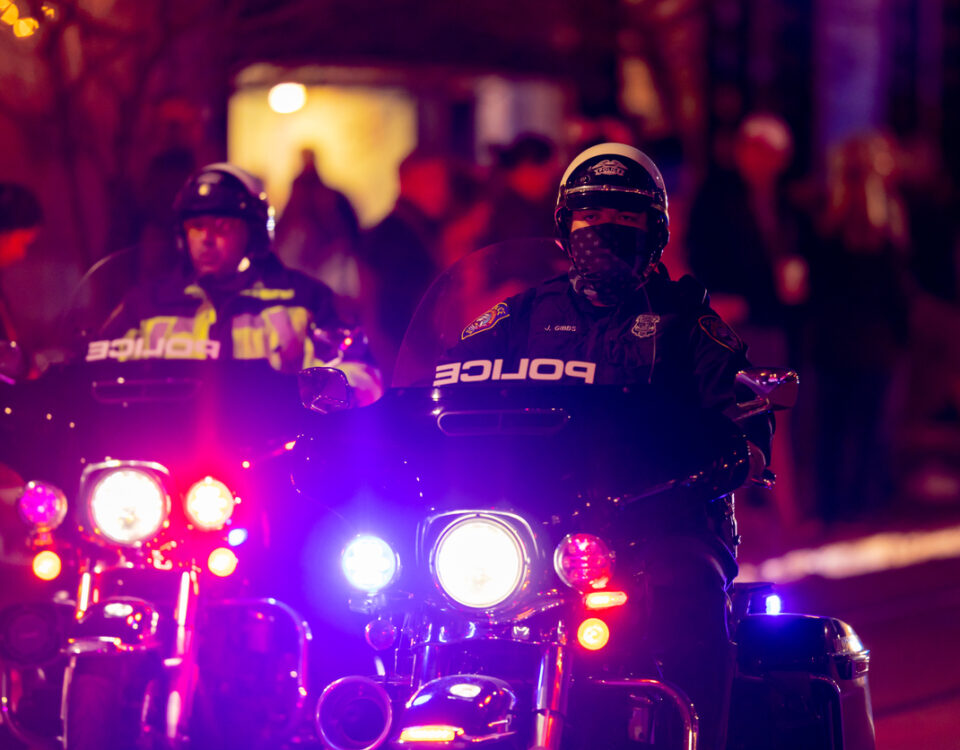Police Professional Liability: Privacy Issues of “the Lipstick Camera”
House Still Stalled On No Child Left Behind Revisions
April 9, 2015Can Special Education Keep UP With Common Core?
April 17, 2015Police Professional Liability: Privacy Issues of “the Lipstick Camera”
Advances in law enforcement present complex privacy risks and Police Professional Liability issues.
Police officers are being equipped with what is called “The Lipstick Camera”. The lipstick camera got it’s name because the mobile video recorder is small, black, and tubular. Officers are being equipped with these and similar wearable body video cameras in hopes that it will reduce rates of police violence and provide useful evidence.
These cameras are popularizing fast, and will likely change the nature of law enforcement. They have caught on across the nation, and their use is continuing to spread. According to a recent article in The New York Times, cities such as Norfolk, Virginia and Washington, D.C. have said that they will be equipping their officers with body-worn cameras.
Along with Norfolk, more than 100 small police departments in Virginia, including the cities of Fairfax and Falls Church, are using body cameras (Weiner, Washington Post).
In Texas, the Fort Worth police force has spent more than $3 million on their body-worn camera program- one the largest programs in the nation. Their program “includes more than 600 cameras and accessories, and storage bills for 64 terabytes of data a year”(Kirk).
And in Florida, Miami Beach has “approved the purchase of $3 million worth of cameras for police officers, parking enforcement workers, and building and fire inspectors”.
Although police forces appear enthusiastic about equipping officers with cameras, this promising new police technology raises complex privacy and security questions. This new technology could be problematic for a variety of reasons. Some question to be addressed:
- Is the video public or private information?
- How will the video data be stored and for how long?
- What security measures are taken to protect the data?
- When will the video be recording?
- How will this affect the relationship between management and police unions?
Despite the potential risks, police executives perceive several benefits in a body-worn camera program:
- Capturing a video recording of critical incidents and encounters with the public
- Strengthening police accountability
- Providing a valuable new type of evidence
Give us a call to find out how you can better protect and prepare your clients with Police Professional Liability.
- Ned Daly- 804.272.8060
- Grey Lester- 804.272-5964
- Peyton Judy- 804.727.4317
- Will Shumadine- 804.272.9210
- Dana Fawver- 804.272.7405
( Perceived benefits from “Implementing a Body-Worn Camera Program: Recommendations and lessons learned)
Link: http://www.justice.gov/iso/opa/resources/472014912134715246869.pdf
References:
Johnson, Kirk. “Today’s Police Put On a Gun and a Camera.”The New York Times. 27 Sept. 2014.
Weiner, Rachel. “Police Body Cameras Spur Privacy Debate.” The Washington Post. 10 Nov. 2013.
Miller, Lindsay, Jessica Toliver, and Police Executive Research Forum. 2014. Implementing a Body-Worn Camera Program: Recommendations and Lessons Learned. Washington, DC: Office of Community Oriented Policing Services.

